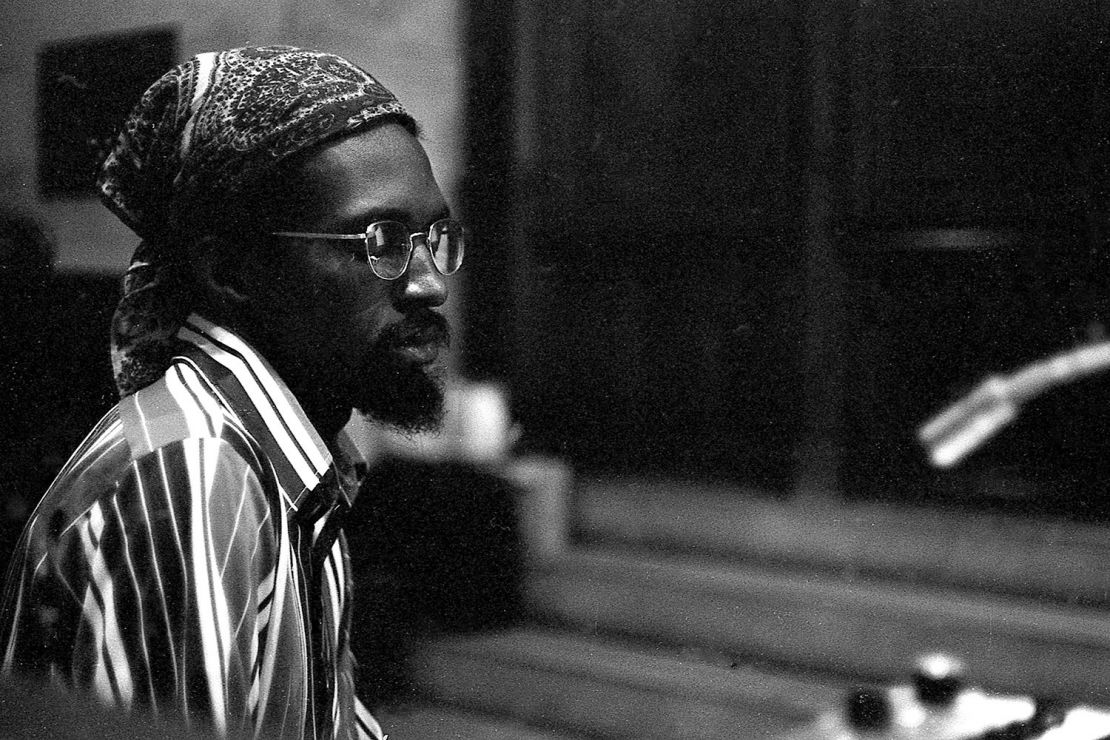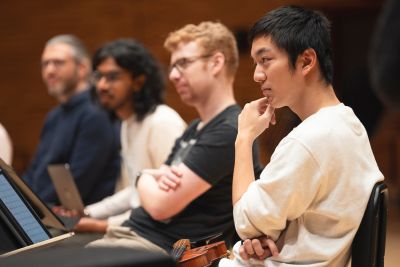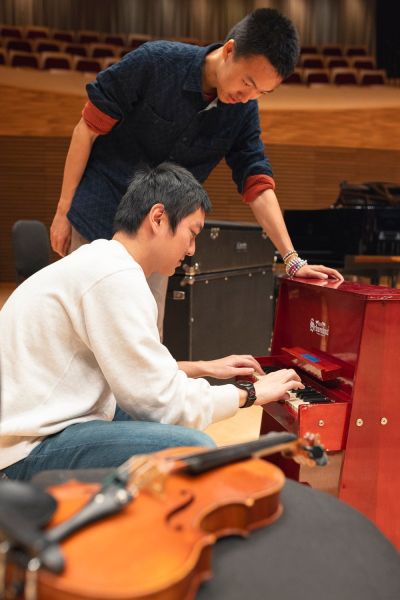
Students in MUSIC 159M rehearse with the music ensemble Wild Up for a performance of composer Julius Eastman’s work in Bing Concert Hall. (Image credit: Andrew Brodhead)
Julius Eastman’s music was ahead of its time. Born in Manhattan in 1940, the composer, pianist, and Grammy-nominated vocalist aimed to be “Black to the fullest, a musician to the fullest, a homosexual to the fullest.” Though he forged a place in New York’s experimental music scene of the 1970s and ’80s, he faded into obscurity after his death in 1990 and his music was largely forgotten for decades.
Today, Eastman’s original scores are being heard again at Stanford. Stanford Live and Hans Kretz, lecturer in the Department of Music in the School of the Humanities and Sciences, have created a course for winter quarter titled Gay Guerilla: a hands-on experience of the life, music, and legacy of Julius Eastman. The class includes lectures, guest speakers, and a chance to take part in a Stanford Live performance.

Julius Eastman (1940-1990) expanded the boundaries of the classical avant-garde music style and used the power of his work to provoke questions about racism and homophobia. (Image credit: Ron Hammond)
Eastman wanted his music to be a tool for social change and to get people involved, says Christopher Rountree, the founder, conductor, and creative director of the music ensemble Wild Up. “It is music that calls for agency, for personal activism, and for empathy for each other in listening. It forces us to be with each other in different ways.”
On Friday, Feb. 9, Wild Up and Stanford students will perform some of Eastman’s most famous works, including Gay Guerilla, Buddha, and Joy Boy. The performance is part of Wild Up’s multi-year project to perform and record Eastman’s works.
Known for “organic music,” Eastman’s work challenges students to find their own interpretation and vision, Kretz says. “My aim is for this class and the performance at Stanford Live to serve as a catalyst for a deeper appreciation and exploration of Eastman’s legacy, such that it fosters a profound impact on the students’ academic and artistic journeys.”

Image credit: Andrew Brodhead



Image credit: Andrew Brodhead

Image credit: Andrew Brodhead


Image credit: Andrew Brodhead

Image credit: Andrew Brodhead

Image credit: Andrew Brodhead

Image credit: Andrew Brodhead

Image credit: Andrew Brodhead


Image credit: Andrew Brodhead


Image credit: Andrew Brodhead

On Saturday, Feb. 10, Wild Up will perform Eastman’s Femenine, a powerful and exuberant piece that looks back in time at controversial topics we are still dealing with today, such as gender identity, racism, and sexuality.
On Sunday, Feb. 11, the Stanford New Ensemble and guest artists Marisol Montalvo, soprano, and Seth Parker Woods, cello, will present Gay Guerilla: A Hands-On Experience of the Life, Music, and Legacy of Julius Eastman at Dinkelspiel Auditorium
Kretz says Wild Up’s residency, hosted by Stanford Live, is a great opportunity for the Stanford community to learn about Eastman and experience his avant-garde music up close. “Stanford Live has the invaluable ability to bring people across campus together to collaborate.”